“Mari-Mari” means Come Come in Malay. This new cultural village is located in Kionsam of Inanam and received many positive feedback from tourists. There are five indigenous houses in the village for you to see how Sabah ethnic groups, i.e., Murut, Bajau, Dusun, Rungus and Lundayeh lived in their past. The air there is fresh, maybe the village is inside the forest and next to Kionsam River.
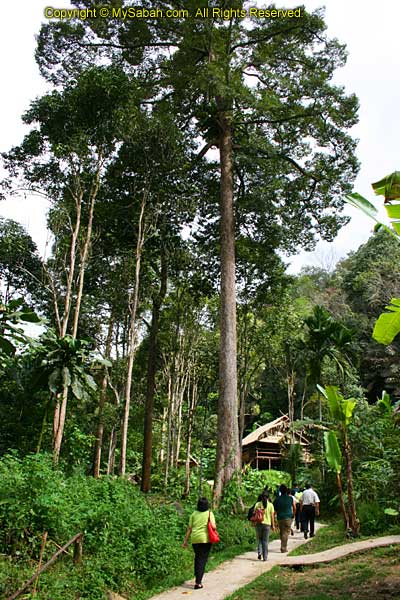
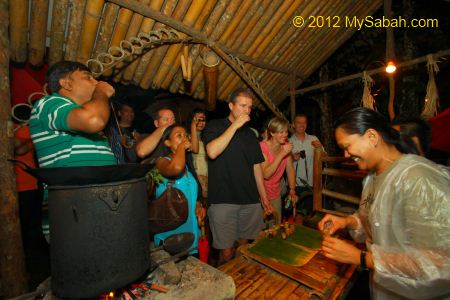
Above: tourists try Lihing the local rice wine
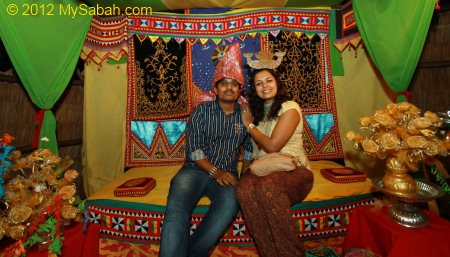
Above: experience traditional Bajau mock wedding
Tourists are presented the traditional way of bamboo cooking, rope making, tree bark processing (for making Murut’s cloth), blowpipe making, etc. You also can try out the traditional food and even experience their activities such as blowing blowpipe and smoking local cigarette.
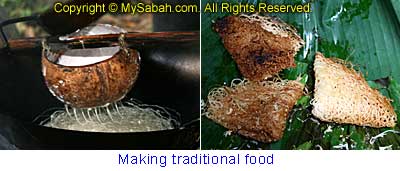
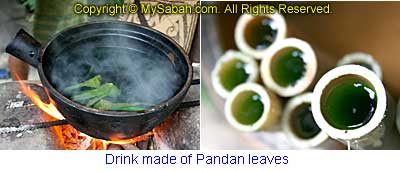
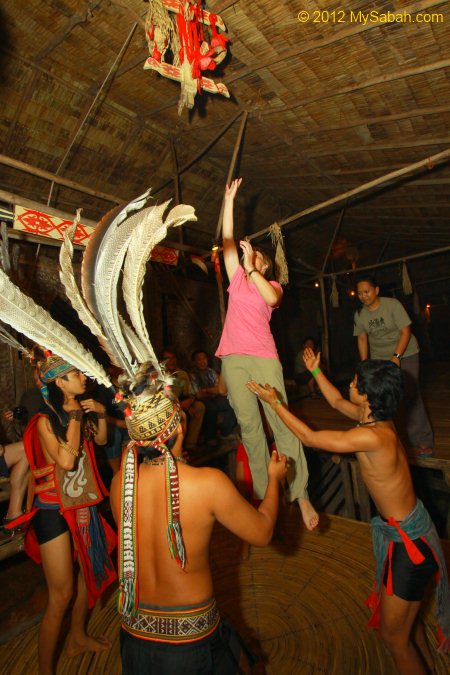
Above: trying lansaran (wooden trampoline) in Murut headhunter longhouse
The guide will bring you to visit each houses and explain the ancient lifestyle. Some “staircases” are quite steep. As a local, I find that I know so little about our cultures. At the end of the tour, you can enjoy the performance of traditional dances and lunch after that.
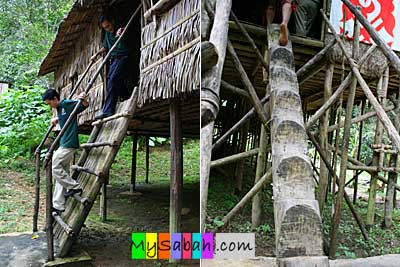
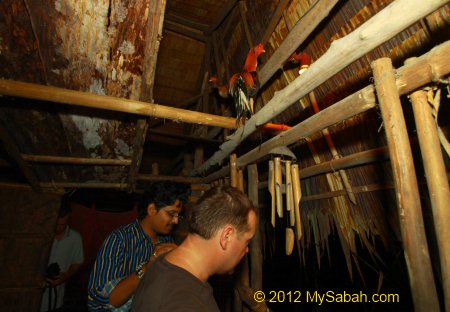
Above: watch out for chicken dropping above your head
You may try the local cigarette. My grandmothers likes to make her own cigarette by rolling tobacco into dry leaf. The taste is light and not as strong as commercial cigarettes, though it has no filter.
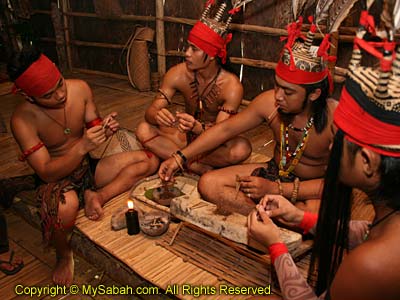
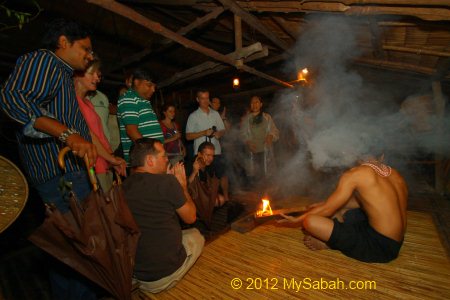
Above: starting fire with bare hands and bamboo in less than a minute
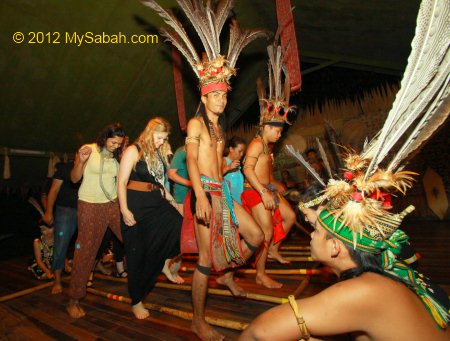
Above: guests are invited to try bamboo dance
The most interesting part for tourists is probably getting a tattoo. They demo the traditional method to create a tattoo.
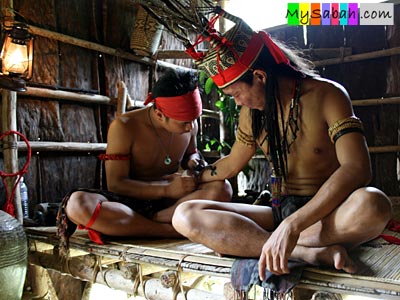
Then visitors also can ask them to tattoo a favourite figure on their skin. They use something creamy to draw the tattoo and it will leave a stain that can last for a few days (not permanent). Not sure if you can ask them to draw tortoise on your arm.
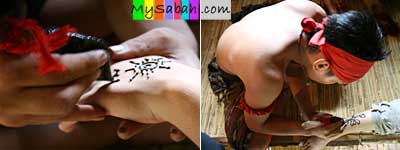
Besides Mari-Mari, Monsopiad Cultural Village in Penampang also offers the similar things. If you ask me which one I like better, it is hard to answer coz both have its uniqueness. The best of Monsopiad is its House of Skulls, a real historic heritage, but Mari-Mari gets better cultural experience. FYI, Mari-Mari does not take walk-in tourists, so you need to book the tour in advance.
Photos taken in Inanam, Sabah, Malaysia Borneo


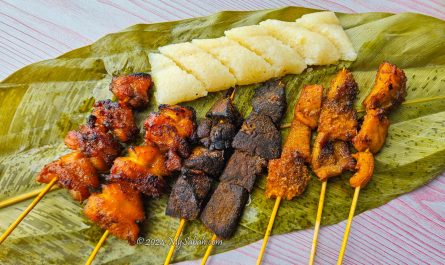

Is that kuih jala? 😀 Also the tattoo sounds like the Indian henna, do you know what ingredients they used?
Why did Mari mari Culture Village choose Kiansom,Inanam for Mari Mari??Give us some reason..
I am also not so sure. Probably because of its green surrounding and near to Kionsom river? And it is not far from city.
how did the came up with the name mari-mari?
I also don’t know oh Jacqualine. May be mari-Mari means “Come-Come”, so money come money come?
hmm i was wondering is those the real traditional Murut tattoo? or just a design by themself or its Iban tattoo design? It will be great if those were the ORIGINAL Murut traditional tattoo designs.
Bobby> you ask a very good question. to be frank, I also don’t know how a real Murut tattoo looks like. the ones that i saw were those marker pen drawing on Murut dancers..
can the dancers be hired to perform in any function..
Bobby> I agree with you. nowadays its seem that the ORIGINAL murut tattoo distinct. hoping that it still out there.
did you went to Linangkit Cultural Village?
Hey what are other ways of booking besides credit card?
Hi Ericka, you may contact Traverse Tours (http://www.traversetours.com) for booking info. They are the operator of the cultural village.